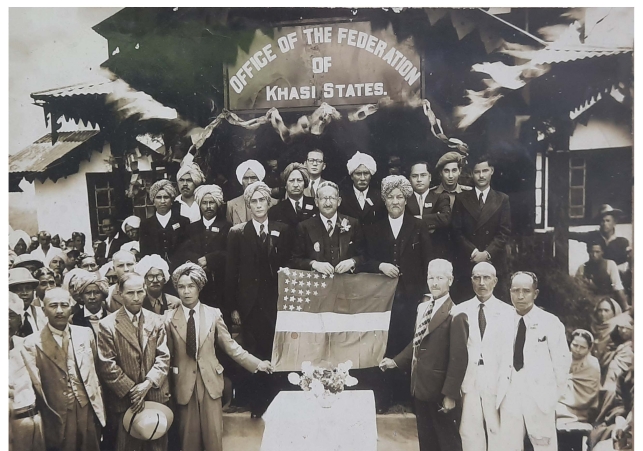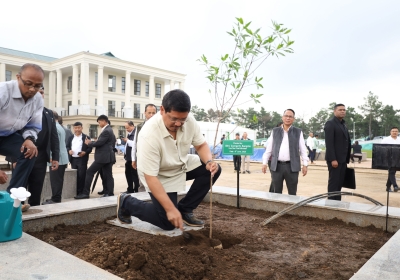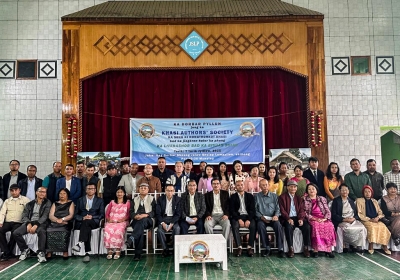Khasi National Dorbar

Shillong- 1 September 2023: The Khasi National Dorbar is an organisation with a difference, which has catered to the overall well-being of the Khasi people for the past hundred years. During British colonial imperialism, there was apprehension and speculation about the plight of the Khasi people, who had already encountered multiple discrimination from layers of forces through the years. with a deep sense of concern, a few elderly Khasi gentlemen came together and deliberated on the prevailing situation in the society. They are Kmuiñ Manik Syiem, Syiem Hima Mylliem, Bidor Sing Syiem, Syiem Hima Nongkhlaw, Rai Bahadur Hormu Rai Diengdoh, Rangbah Kishore Swett, Rangbah Assiam Lyngdoh, Rev. J. J. M. Nichols Roy, and Rangbah Wilson Reade. They convened a meeting on the 4th of September 1923 at Iewduh, the main traditional market of the Khasi people. However, due to certain circumstances, the venue was shifted to the courtyard of Rev J J M Nichols Roy, where all the traditional heads of all the Hima in the Khasi region were invited to attend and share their thoughts on the safety and security of the citizens of the territory. Around a hundred-odd traditional heads converged at the courtyard of Rev J J M Nichols Roy at Qualapatty and resolved to form the Khasi National Dorbar. The meeting selected Join Manik Syiem, Syiem of Hima Sohra as the Chairman and Mr Hajom Kissor Singh as the Secretary with the constitution of committees to oversee the problems of governance and administration, which was usurped by the colonial masters and the same was in the process of transferring to an alien force outside the jurisdiction of the Khasi territory. Prior to the invasion of the British East India Company, all the Khasi Hima or states were federal entities of the same ethnic community with independent jurisdiction on every aspect of civil administration. with the inception of the British colonial power, the traditional states were forced to unite and converge into a single force to reckon with in the entire region. Apart from the traditional heads of each State, their vital associates in the administration were given the responsibility to shoulder the burden of the common cause of the entire Khasi race.







